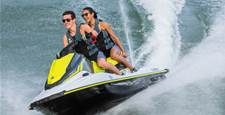“Hockey is one of the great passions of my life. I have never found it anti-intellectual.”
“Hockey is one of the great passions of my life. I have never found it anti-intellectual.”
After hanging up his hockey stick he turned his hand to politics, spending four terms in Parliament as the Labor member for Perth. He found politics stimulating but hell on his private life, so he quit and stumbled, by chance, into the coaching position of the Hockeyroos. For eight years he guided the girls to unprecedented success, claiming four Champions Trophy titles, two World Cups, two Olympic golds.
In October 2008, Charlesworth took the reins of our men’s team, the Kookaburras. His golden touch was promptly apparent as the team won last year’s Champions Trophy in Melbourne. During preparation for the upcoming World Cup this month and Commonwealth Games (October), both in Delhi, Charlesworth took the time to have a coffee with Inside Sport. Believe us, this is a man worth listening to.
Congratulations on the recent triumph at the Champions Trophy. Were you nervous at half-time in the final as Germany held a 3-1 lead?
Oh … yeah! We actually played quite well in the first half and hockey’s the kind of game – because it’s low scoring – where you can be making chances and playing well, but the other team scores on the counter attack and you’re down. We had a few things go against us in the first half; we were playing okay, we just weren’t getting rewarded. That’s the reality in hockey.I’ve been in the job a year now and I’ve been saying all along that to get things solid will take 18 months to two years. So I contend that it was pretty early to be tested in the sort of situation we were in in that Champions Trophy final.
You were still critical of the team’s defence after the game …
Well, we made mistakes in defence that put us in that situation. And I think we can mend those mistakes. You’ve got to be honest about where you’re at in this caper. You can’t kid yourself because the final exam is a tough one and there are a lot of things that can go wrong, so you’ve got to pay attention to these things to ensure reliability.We picked a team for the Champions Trophy with an eye to the World Cup because we wanted some people to be tested. You know, we’ve had three defenders who have debuted in the last year, and that’s pretty hairy. Particularly when you consider we’ve had two great defenders and two goalkeepers retire after Beijing. So yes, our defence needs work.
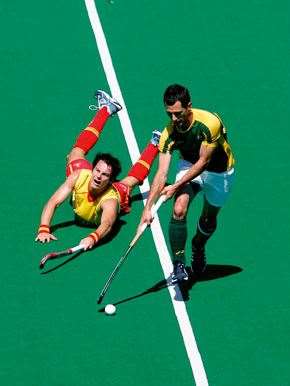 Jamie Dwyer leaves Spain’s Rodrigo Garza in his wake at the Champions Trophy in Melbourne. Images: Getty Images
Jamie Dwyer leaves Spain’s Rodrigo Garza in his wake at the Champions Trophy in Melbourne. Images: Getty ImagesDo you have concerns about the security in Delhi for both the World Cup and Commonwealth Games?
In the ‘70s, when I first went to England with the Kookaburras, bombs were going off in the streets of London because of the Irish problem. I was in Madrid, just outside the train station, when bombs went off there in 2004. I was in London, on my way to Rotterdam, when a bomb went off there in 2005. I think we’re a bit precious about these things sometimes. I know Pakistan is very dangerous at this time, but I don’t think you could say the same thing about India.
As a coach you’ve always been emphatic on teamwork, the unit above the individual. Does it concern you that individuals within the Kookaburras – guys like Jamie Dwyer, Mark Knowles, Eddie Ockenden – are rising to prominence in the public eye?
God, no. Not at all. Hockey is a complex, integrated team activity; the players need to rely on one another, they need to understand the contributions that everyone has to make. And you don’t win without everybody making a contribution – they need to understand that. But the other part of it is that you want brilliant individuals to do brilliant things. And the more brilliant individuals the better, in my opinion. But you don’t score a goal unless you have four, five, six pieces hung together correctly; it’s very rare that it’s just one action that results in a goal. So it’s critical that everyone in the chain plays their part. I encourage the players to be as unpredictable as they like within the framework that they need to understand one another.
What is your guiding philosophy as a coach?
This might sound simplistic, but athletes have to play the percentages. There’s a range of essential skills that any team needs to succeed and you have to get those skills right. And so the coach’s role is to hold the players’ feet to the fire. In the end I don’t make any tackles or passes, it’s up to them to do those things. But my role is to help them realise their potential. I believe most athletes don’t realise what they’re capable of, so it’s important to expand their horizons, to expand their possibilities. I think that’s critical. Leadership is about knowing where you’re going and convincing the people around you they can get there. Another thing I think is very important is creating a competitive environment. Last year we had 14 players debut – I’m really trying to develop a broader squad with more athletes who can play for Australia. That way we create a competitive environment and they push one another. That’s one of the important engines of progress in our group – the players push one another to be better.
Were these the tactics you used to continue motivating the Hockeyroos over that period of success from ’93-00?
With the Hockeyroos we always had gifted athletes and I defy any coach to win major competitions without gifted athletes. Where I think I can take a bit of credit is that we sustained our success for nearly a decade. That’s a hard thing to do. And, yes, it comes back to continuous improvement, internal competition and expanding their horizons.
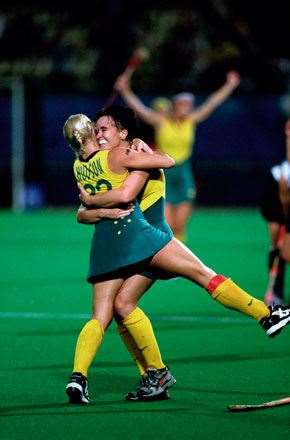 Alyson Annan and Nikki Hudson thrived under Charlesworth’s coaching reign. Images: Getty Images
Alyson Annan and Nikki Hudson thrived under Charlesworth’s coaching reign. Images: Getty ImagesIs it difficult coaching teams like the Hockeyroos and Kookaburras, where the public scrutiny arrives in very short and distinct bursts?
Yes, but if you’re under scrutiny all the time, it could make it a lot worse … But the fact hockey only receives concentrated, short-focus scrutiny is disappointing for the sport. Hockey is a much better sport to watch now than it was ten, 20 years ago. It’s full-on, very high intensity, very high skill level. People who go and see the games are surprised by the level of skill and the speed with which the ball moves. So it’s disappointing for me that there isn’t more media scrutiny. That can make it easier for a coach, but it can also make it more difficult. I mean, how do you measure success in my job? In the end, most people will measure whether or not I’ve been successful in my job on the last two games in the Olympics in 2012. And that’s a pretty hard measuring stick.
Would you consider coaching other sports?
There was a time when those things were a possibility; there was certainly a time when the cricket job was there, but the timing wasn’t right. I certainly think that most of the coaching in sport is generic, but the technical detail of a sport is something you need to be on top of. And then you need to have the passion for it, because it’s a very demanding job; you’ve got to live it. If all those things lined up … Technical detail’s the thing I’d need to get on top of. Of course I had that with cricket, but whether I had the passion for it … I don’t think I could watch 250 days of cricket a year.
Considering the breadth of your experience, do you ever find coaching hockey limiting?
Well, I think the secret for anybody is finding out what you’re best at and what you love most. Hockey has always been one of the great passions of my life. I never found it anti-intellectual, I always found it an intellectual exercise and I still do. So my answer is no; I love the game and this is the thing I’ve found in my life that I do best. And so it’s very satisfying.
In your own playing career, did your failure to win Olympic gold shape your approach to hockey now?
I remember losing that gold medal match in Montreal and I justified it by saying, “Well, if we’d won now, what else would there have been?” And I kept playing for ten or 12 years after that match.You only get a couple of chances in your lifetime. You know, we had a much better team for Moscow than we had for Montreal, but we didn’t get that chance. For the LA Games I thought we were the best team in the world and we didn’t even make the gold medal game. And that’s the reality of the Olympics – the world record holder wins one event in four. It’s a hard gig. And I don’t think we put in the time and the preparation back then to be really reliable. We had brilliant players and we did well at certain times, but we weren’t as reliable as we could’ve been. My view when I became a coach was that we could do these things. Perhaps those disappointments as a player were the things that stirred me to believe that.
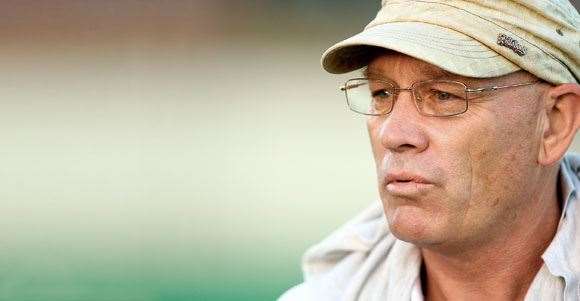 Ric Charlesworth Images: Getty Images
Ric Charlesworth Images: Getty ImagesWhat lessons on human nature did you learn in parliament?
Oh, if teamwork’s important in sport, then it’s just as important in politics. You just don’t see it very often.
Did politics heighten your appreciation of sport?
I was part of a political movement that, for the first time, really provided athletes with the opportunity to be truly outstanding in a variety of sports. And that’s desirable. If we go the way of only the mass media sports being financially supported, then we’re going to have a very narrow sporting environment – footy, cricket, tennis, golf and that’s it. I’m concerned about where our sport is going. I certainly think there’s a place for the government to support athletes who want to be outstanding in a range of sports.
So hockey will suffer under the recommendations of the Crawford Report?
Well, you’ve got 150,000 Australians who play the game. I watch 60 and 70-year-olds out here playing. It’s a game that’s based on skill and speed, not brawn. And there are thousands of volunteers – my club has 38 fields where 1400 kids play hockey every Saturday and it’s all run by volunteers. By any measure, this is a sport that demands government funding. It ought to be rewarded and supported. What I find scary is that the major sports are massively supported by the tax payer. Every suburb in the country has got footy fields with goals, they’re building new AFL stadiums in Blacktown and the Gold Coast, the MCG just got renovated recently – that’s all public money. And Crawford’s running around saying that we ought not to support a sport like ours which runs on the smell of an oily rag. There are athletes in my program who are payed $250 a week to play and train. That’s less than the pension. An AFL rookie earns more than my son, who’s a doctor. It’s nuts.
– Aaron Scott
Related Articles
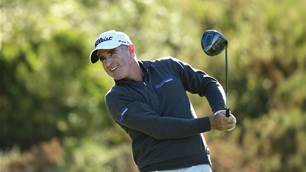
Video interview: Drinks With ... Matt Millar
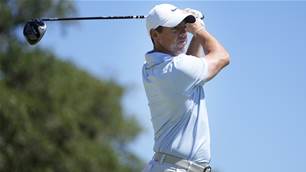
McIlroy turns to Butch Harmon ahead of Augusta berth
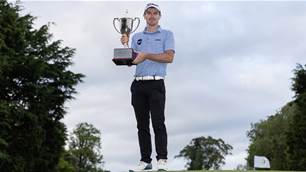
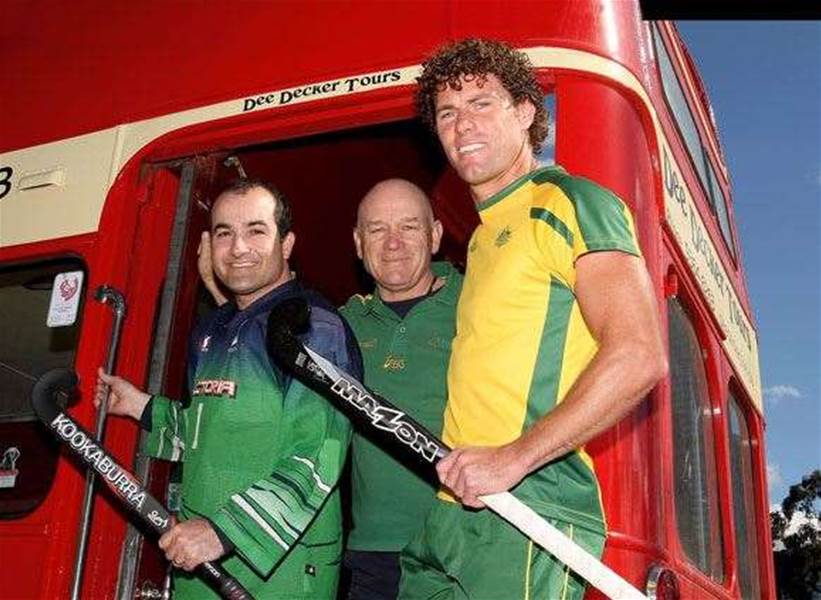
.png&h=115&w=225&c=1&s=1)




